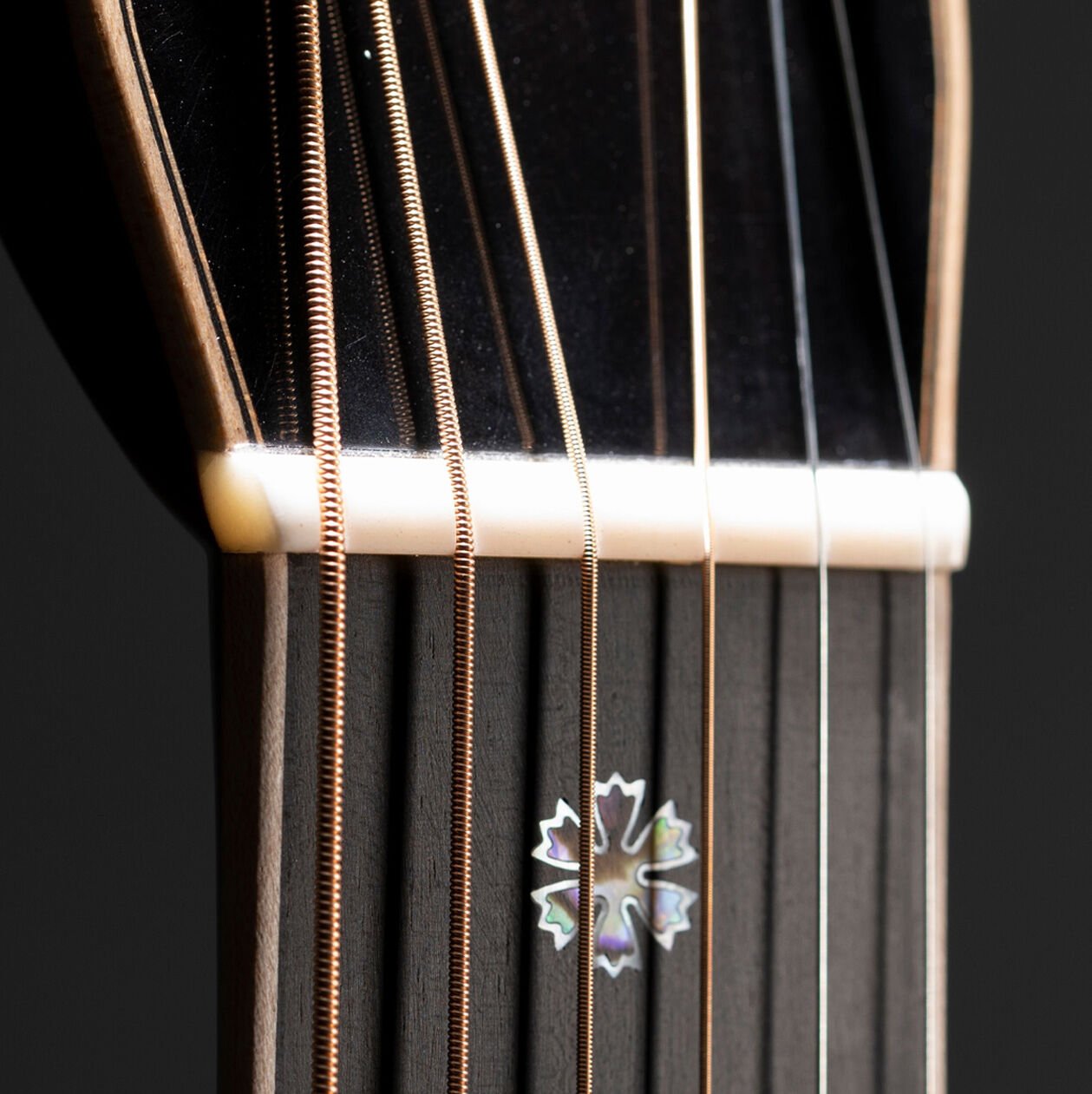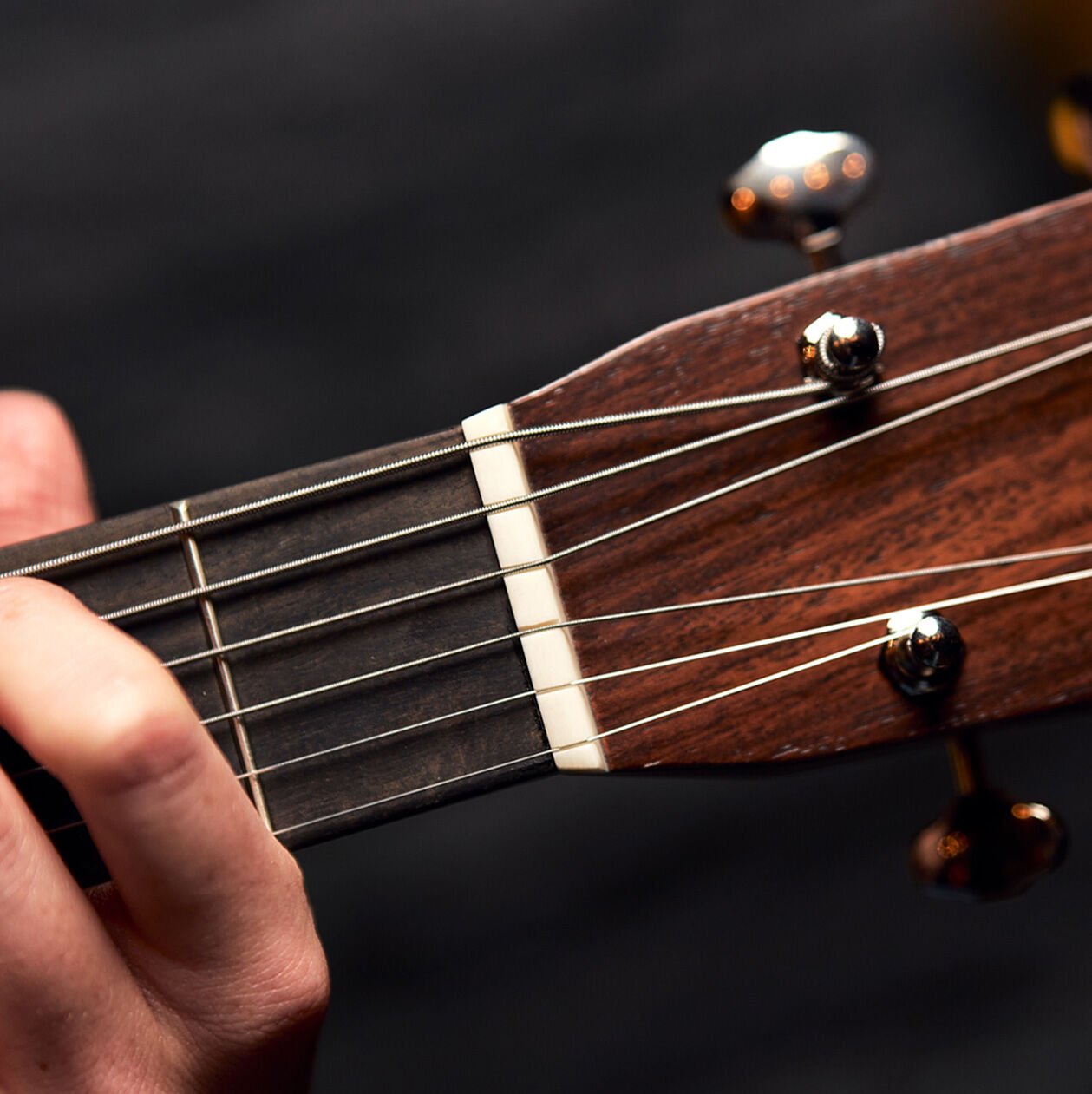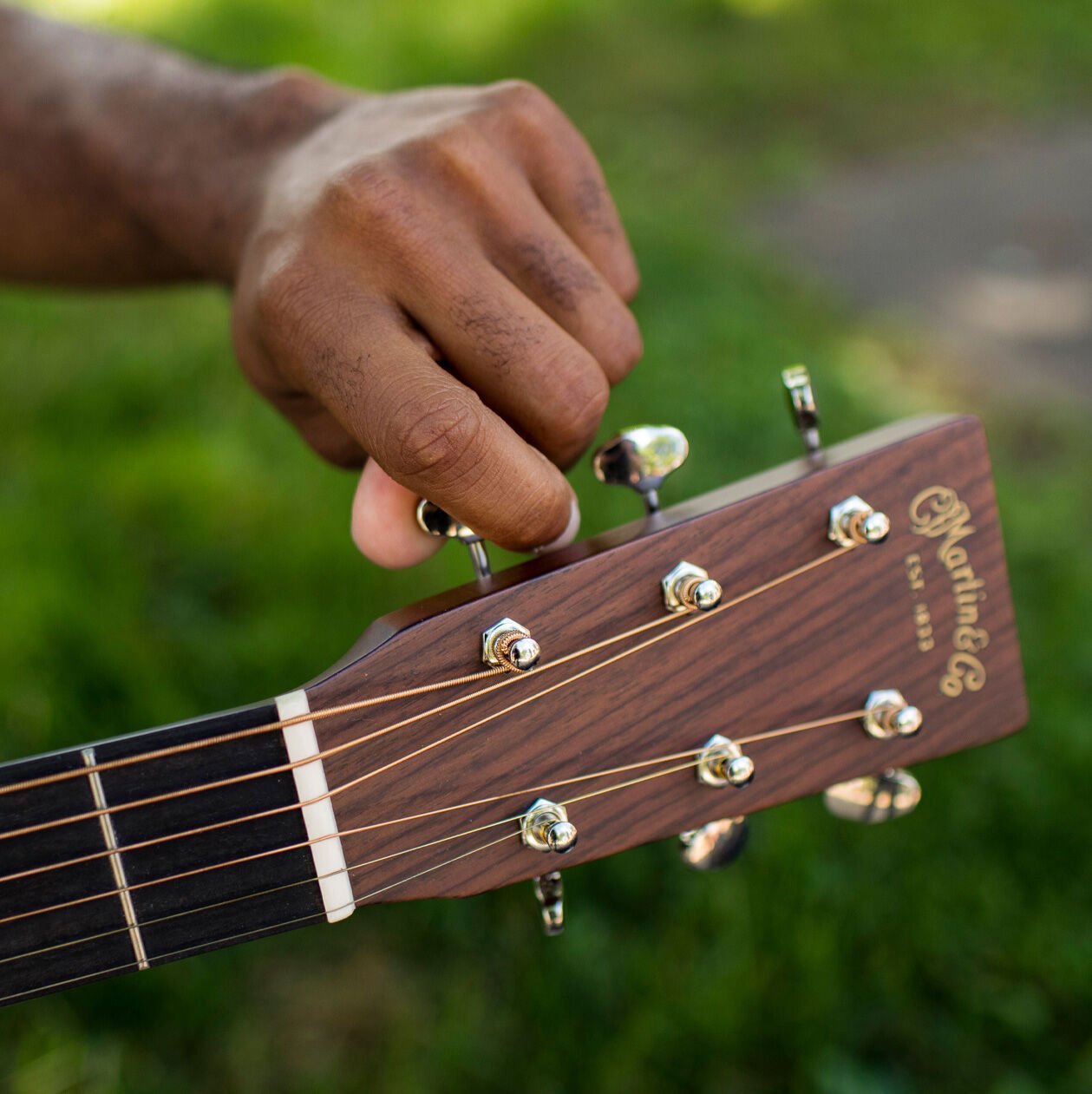From the Factory | March 6, 2024
Guitar Nut Types & Materials Explained

In the wide world of acoustic guitars, the significance of the guitar nut can’t be overstated. It’s a small, yet crucial part of the instrument. Without it, you wouldn’t be able to play. But what do guitar nuts do?
The nut – the sliver of material between the fingerboard and headstock – plays a pivotal role in shaping the instrument’s sound and playability. Not only does it hold the strings in place, but it also determines the spacing between the strings, the action – how high the strings are above the fingerboard – and tuning stability. Nuts influence the tone of the guitar by transferring vibrations of the strings directly to the neck.
Here at Martin, we take every part of our guitars seriously, and that includes the often-overlooked nut. When remastering our X Series lineup, we added a number of playability enhancements, including refined string spacing by slightly tweaking the nut.
This blog post explores the different types of guitar nuts and materials, shedding some light on how they contribute to a guitar’s overall performance.

Types of Guitar Nuts
Just like there are different types of guitars that come in all shapes, sizes, and sounds, there are different types of guitar nuts, too. Nearly all Martin guitars, and most guitars in general, use traditional nuts. But there are other styles and types that help players achieve their unique tone.
Traditional Nut: The traditional nut is the bedrock of acoustic guitars, typically crafted from bone or synthetic materials. Known for its simplicity, it ensures optimal string spacing and height, offering a classic, warm tone that resonates through the instrument.
Locking Nut: Designed for stability and tuning precision, locking nuts incorporate a mechanism to secure the strings tightly. Commonly found on electric guitars, they prevent slippage during intense playing, bending, and dive bombing, providing a reliable solution for those who demand precision in their performance.
Roller Nut: Ideal for players who use tremolo systems, roller nuts feature small rollers that reduce friction on the strings. This design minimizes tuning issues caused by string binding, allowing for smooth vibrato effects without compromising tuning stability.
Compensated Nut: Aimed at enhancing intonation, the compensated nut features strategically placed grooves or angles to address the inherent tuning challenges on fretted instruments. This ensures accurate pitch across the entire fretboard, making it a preferred choice for meticulous players.
Zero Fret Nut: Revolutionizing traditional designs, the zero fret nut positions a fretwire right at the nut's location. This improves string height consistency and facilitates precise intonation adjustments, contributing to a more uniform tone across all the frets.

Guitar Nut Materials
Not only are there different types of guitar nuts, but they can be made from a variety of different materials. Similar to how different tonewoods affect a guitar’s overall sound, experimenting with different guitar nut materials can do the same.
Martin has used many materials for nuts over the years, including ebony, nickel silver, and ivory, which Martin started phasing out in the 1960s, with its last recorded use on a D-45 in 1980. Nowadays we mainly use bone nuts on higher-end models, and Corian – a durable, high density synthetic material – on our more budget-friendly models.
Bone: Renowned for its rich, resonant qualities, bone nuts are a popular choice among luthiers and players seeking a warm and well-balanced tone. The material's density and ability to transmit vibrations make it a classic option for musicians. Martin uses bone nuts for our Nazareth-built acoustics, like the Standard and Authentic series.
Corian: A solid surface material composed of acrylic polymer and natural minerals, Corian nuts offer several advantages over traditional materials, like consistency in build and tone, durability, and workability. Corian nuts provide a reliable and consistent option for builders and players looking for a sturdy and well-performing nut material. Martin uses these nuts on our more budget-friendly models, like the Road Series and remastered X Series.
Fossil Ivory: A legal alternative to elephant ivory, fossilized ivory is harvested from ancient mammoth and walrus tusks. This material offers similar tonal characteristics to bone and was used on some Martin models in the early 1990s, but it’s hard to find and tougher to work with due to the hardness of the material.
Plastic: Offering affordability and versatility, plastic nuts are commonly used in entry-level, budget-friendly guitars. While they may lack the tonal complexity of natural materials, they provide a practical solution for players on a budget.
Metal: Popular in electric guitars, metal nuts contribute to a bright and sharp tone. Their durability and resistance to wear make them suitable for aggressive playing styles, adding an edgy character to the guitar's sound, especially when paired with fuzz or distortion.
Graphite: Known for its self-lubricating properties and stability, graphite nuts reduce friction, enhancing tuning stability. This modern material suits players who prioritize ease of play and consistent performance.
Ebony: Valued for its density and sleek appearance, ebony nuts offer a darker, softer tone but don’t resonate as well as bone. This luxurious material adds a touch of elegance to high-end guitars, making it a preferred choice among discerning players. Many of the earliest Martins were handcrafted using ebony nuts.

Browse Martin Guitars, Accessories, & Parts
Guitar nuts – the part, not us – are a lot more interesting than you might’ve thought. Each type and material contribute distinct characteristics to the instrument's sound.
Explore Martin's impressive range of guitars, parts, and accessories to experience the craftsmanship and innovation that goes into creating exceptional acoustic guitars and discover the perfect combination of materials for your musical journey. And don’t forget to reach out to your local dealer or service center with any questions.
Happy playing!